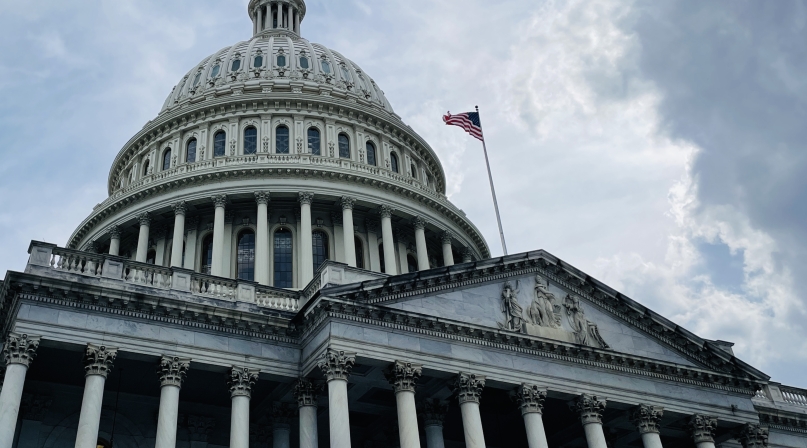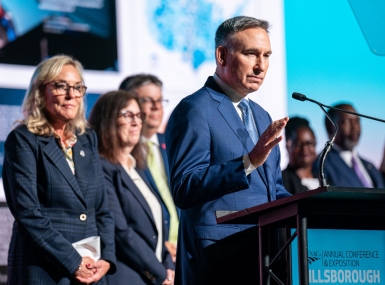Senate lawmakers unveil bipartisan supplemental national security package; Includes provisions of significance to counties

Key Takeaways
On February 4, U.S. Sens. James Lankford (R-Okla.), Kyrsten Sinema (I-Ariz.) and Chris Murphy (D-Conn.) released a $118 billion bipartisan national security supplemental package that includes $20.2 billion towards border security. The Emergency National Security Supplemental Appropriations Act of 2024 (H.R. 815) is a result of months of negotiations after President Biden released a national security supplemental request in October 2023. H.R. 815 contains several provisions of note to counties, including:
Increased Direct Funding to Counties
- $933 million to be made available for the U.S. Customs and Border Protection (CBP) and U.S. Federal Emergency Management Agency (FEMA) Shelter and Services Program (SSP)
- An additional $350 million, then another $116 million will be unlocked once the U.S. Department of Homeland Security (DHS) meets certain benchmarks
- $100 million for FEMA Operation Stonegarden Grants (OPSG), which can be used by counties to bolster local law enforcement through activities such as hiring additional law enforcement personnel, overtime pay, general purpose equipment with the mission to improve overall border security
Strengthening Ports of Entry and Changes to Border Security
- $723 million is to hire additional CBP officers, Border Patrol agents and support Border Patrol overtime to efficiently manage the flow of individuals and commerce at ports of entry
- $424.5 million for the acquisition of innovative non-intrusive inspection equipment and enacts the bipartisan Fend Off Fentanyl Act to combat the entry of fentanyl and other illicit narcotics
- Temporarily grants DHS authority to prohibit the entry of certain populations between ports of entry after migrant encounters exceed certain thresholds
Asylum Seekers, Refugees and Unaccompanied Children
- Raises the asylum screening standard and consolidates multiple initial asylum screenings into one Protection Determination Interview. It is expected that this new standard and expedited timeline will significantly decrease the number of asylum claims that are approved
- $350 million to provide access to counsel for unaccompanied children 13 and under
- $2.3 billion to the U.S. Department of Health and Human Services (HHS) Administration for Children and Families (ACF) for refugee and entrant assistance activities including grants or contracts with qualified organizations to provide cultural and linguistic services, wraparound services, housing assistance, medical assistance, legal assistance, and case management assistance
Additional Visas and Deferred Action for Childhood Arrivals (DACA)
- Authorizes an additional 250,000 immigrant visas for the next five fiscal years, which would be divided between the family-based (32,000/fiscal year) and employment-based 18,000/fiscal year) visa categories.
- Does not contain any language in support of DACA recipients, also known as Dreamers, a long standing county priority. However, it does protect the deportation of children of H-1B visa holders who come to the country legally, but often "age out" by turning 18 before they are able to receive a green card because of long backlogs.
Legislative Outlook
The national security supplemental package faces an uncertain path forward in Congress with concerns from lawmakers. The bill is expected to be put up for a procedural vote in the U.S. Senate on Wednesday, where it must receive 60 votes to advance. NACo will continue to monitor progress on the package.
Related News

Policy priorities to improve mental health unveiled in NACo commission final report
The NACo Commission on Mental Health and Wellbeing outlined its policy priorities to improve mental health in its final report unveiled Saturday, July 13 at the Annual Conference.

Child welfare program asks families: ‘What do you need?’ before their breaking point
Stearns County, Minn. let families tell the system the support they need and bring together all of the stakeholders to make that possible.

